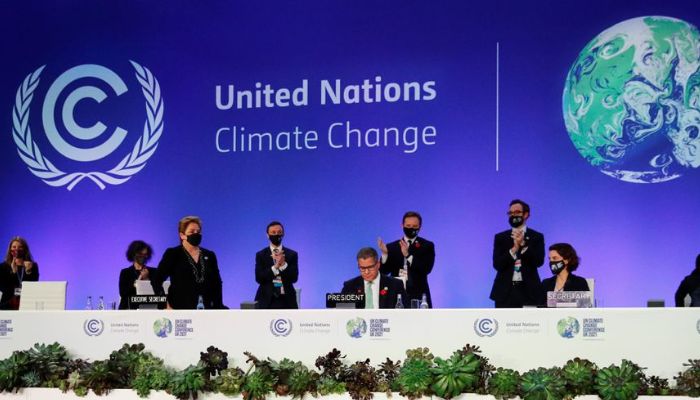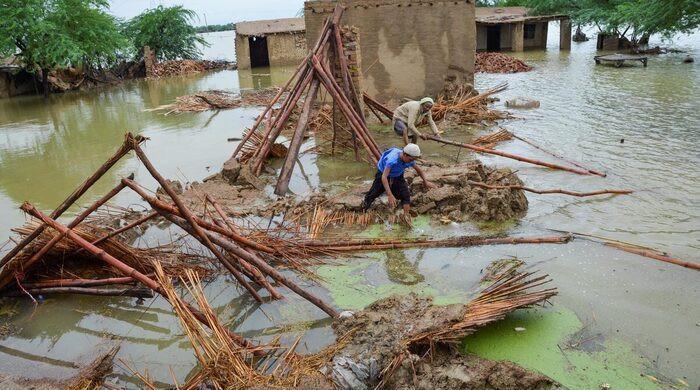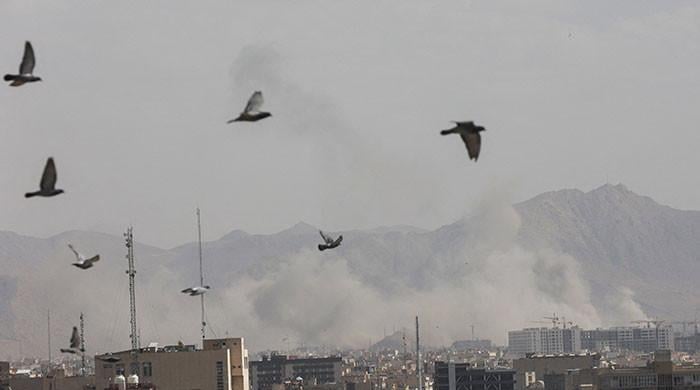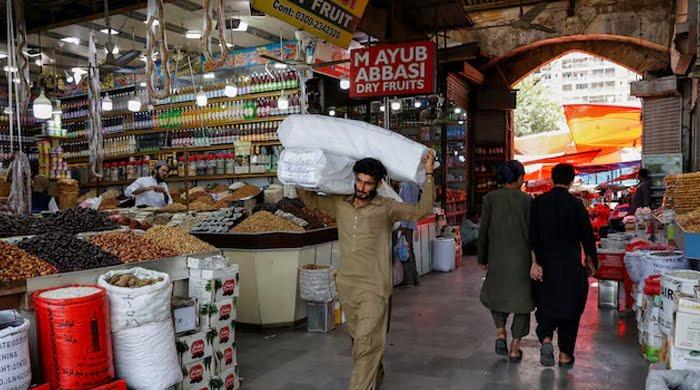Global North must take responsibility for the floods in Pakistan
Our policymakers must pull up their sleeves and bring up climate justice, compensation, financing and address losses and damages at COP27 in Egypt later this year, writes Hamza Haroon
September 01, 2022

My professor Dan Schrag taught us a valuable lesson: climate change is a global problem and requires collective global action. He would stress that we should not address emissions in isolation but also understand their relation to cumulative global emissions.
Greenhouse gases mix in the globally shared atmosphere, hence the emission location is irrelevant. In short, climate change is a global commons problem, and yet the speed of global collective action to tackle this issue is alarmingly slow and lacks substance.
Those responsible for the recent floods in Pakistan must take full responsibility, especially the Global North, which includes wealthy countries that contribute massively to cumulative global emissions.
These countries, obsessed with fossil fuels, need to mitigate, compensate and develop financing solutions for countries like Pakistan in the Global South, to adapt to the unavoidable and existential threats posed by climate change. The other lot responsible for this calamity is the atrophic policymakers of Pakistan who, for a long time, have resorted to soundbites and photo ops rather than crafting sound climate-resilient policies.
The Intergovernmental Panel on Climate Change (IPPC) claims that roughly 45% of the world’s population resides in areas of ‘high vulnerability to climate change. It stresses that these vulnerable areas will be heavily impacted by floods, droughts or extreme weather in years to come.
Pakistan is one of those highly vulnerable countries even though its contribution to the cumulative global emissions is less than 1%. Pakistan now faces even harsher living conditions, severe natural disasters impacting our way of life and economic losses threatening our existence.
The science is clear on climate change impact.
Pakistan is suffering the adverse consequences of global emissions with almost nine times more rains than average this year, record high temperatures, heatwaves and increased severity and frequency of natural disasters. What is not clear is why vulnerable countries like Pakistan are paying the price for countries which bear not only the historic responsibility of climate change but also continue to emit obscene amounts of cumulative global emissions.
Where is our reparation for the emissions emitted by these responsible nations and fossil fuel companies? How do they justify the loss of life, loss of culture, and loss of biodiversity that we face due to their emissions?
How can an economically distressed country like Pakistan absorb $5.5 billion of destruction, as calculated by expert analysts Uzair Younus and Ammar Khan, suffered due to the recent floods just because a few nations in the Global North could provide their citizens cheap energy?
The Conference of Parties (COP 26) and many previous climate change conferences gave rise to the mechanism of losses and damages (L&D).
The aim of "L&D" is for wealthy, high-polluting countries to address losses and damages associated with the impacts of climate change, including extreme events in countries like Pakistan, which are particularly vulnerable to the adverse effects of climate change.
Losses and damages requests by highly vulnerable countries and calls for increased climate financing to build adaptive capacity have, as expected, fallen on deaf ears. Climate financing pledges, such as the $100 billion green climate financing, pledged in 2009 by wealthier and high-emitting countries, were supposed to start financing vulnerable countries from 2020.
Unfortunately, high emitters of GHGs cannot even get their act together to provide the climate financing fund, and the programme is now delayed until 2023 due to insufficient funds.
The $100 billion yearly financing is minuscule compared to what is required to deal with the complexities of achieving climate change resiliency.
One massive storm, like Hurricane Katrina, which made landfall in August 2005, needed a $75 billion fund for emergency response from the US government. How on earth will vulnerable countries across the globe which continuously face mammoth disasters divide up a $100 billion fund to build climate resilience? The math, the indifference, and the apathy are perplexing.
Pakistani policymakers have also known about the risks we face due to climate change for decades, and yet our policies have remained hollow, archaic, and uninspiring.
Being one of the most vulnerable countries Pakistan must prioritize adaptation over mitigation as a strategy. We must have a comprehensive adaptation strategy through a national adaptation plan (NAP) to tackle climate change threats.
NAP will help us identify vulnerabilities due to climate change and help chart sustainable growth while building readiness against continuous climate change challenges. It has been two years since the Pakistani government announced they began working on an action plan, and we still continue to wait for its completion.
If climate change truly is a global collective challenge, it needs stronger political will, empathy and leadership, especially from countries contributing the most to cumulative global emissions.
These high contributing nations need to own up to their mistakes and understand that it is their shared moral responsibility to do what is necessary to protect vulnerable countries from the adverse climate change impact they are responsible for.
Our policymakers, who pretend to know all the answers, must pull up their sleeves and bring up climate justice, compensation, financing and address losses and damages (L&D) at COP27 in Egypt later this year. They need to raise the plight of Pakistanis who are facing repeated catastrophic disasters but also work towards averting, minimizing, and addressing future catastrophes.
The writer is a graduate of the Kennedy School of Government, Harvard University. He tweets at @HamzaAliHaroon
Originally published in The News











